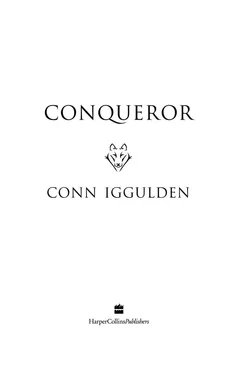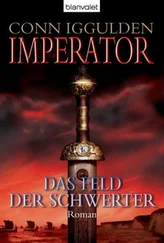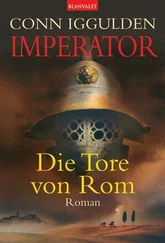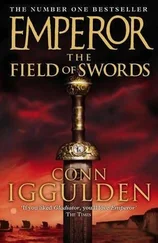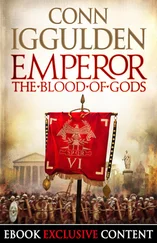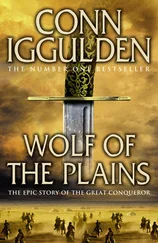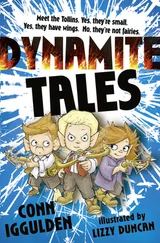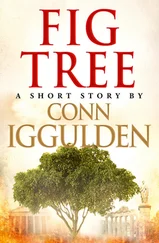‘You walk him in, Lev,’ the yam master said. ‘I’ll deal with the horse.’
The animal was blown, ruined, and in much the same state as its rider. The master took the reins with a grim expression to lead it out into the yard. He didn’t want blood on the floor inside.
‘I’ll be expecting a few choice cuts for tonight,’ one of the others called after him.
The yam master ignored the comment and the scout was led stumbling away with a man’s hand on his shoulder.
The yam rider knew better than anyone not to question the scout and they walked in silence through the streets towards the khan’s palace. It could be seen from a long way off, with its gold-capped tower. The scout looked up at it gratefully, hobbling along with each step sending sharp pains up his legs.
The palace gates were manned by Day Guards in polished armour. They nodded to the yam rider and looked askance at his filthy companion.
‘Khan’s orders. Captain of the Guard, urgent,’ the yam rider said, enjoying the chance to make them move quickly for once. One of the Guards whistled and another one inside went running off at full sprint, his boots clattering on the stone corridors so that they could hear his progress for some time.
‘Any news of that army?’ the Guard asked.
The scout shrugged, his voice still rough.
‘They were turning to face the khan, last I saw. It’ll be over today.’
The Guard looked as if he wanted to ask more, but they could all hear the running steps returning, with another alongside. The captain had not bothered about his dignity, not with a message from the khan and a hostile army outside Karakorum. He arrived at a flat sprint, skidding to a stop and putting an arm out to the gatepost to steady himself.
‘Do you need to tell me in private?’ he asked, panting.
‘I wasn’t told that. The khan told me to say “It’s time”.’
To the scout’s surprise, the captain paled and took a deep, slow breath as he settled himself.
‘Nothing else?’
‘That’s it, sir. “It’s time.”’
The captain nodded and walked away without another word, leaving four men staring after him.
‘That doesn’t sound good for someone,’ one of the yam men muttered.
Kublai snapped his gaze back and forth, between the tumans riding towards him and his own. Both sides moved fluidly, shifting and overlapping as they came together, searching out weaknesses in the other and forcing them to react. To an outsider, it might have looked as if two great armies swept mindlessly towards each other, but the truth was a constant, darting struggle. Arik-Boke’s generals would shore up one wing and Kublai or Uriang-Khadai would react to it. They would bring a new tuman swinging over to bolster another position, drawing the enemy back into line rather than risk a massed attack on a weak part of their formations. It happened at a canter and then a gallop, with each officer seeking the slightest advantage as they came within bow range.
At three hundred paces, the first shafts were sent flying up from both sides. The maximum range and the closing speeds meant they would hit overhead in the ranks further back. Kublai saw them soaring thickly to where his bannermen rode and he roared a final order to the closest general. They had only moments to react, but they drifted left, shoring up his own ranks and weakening the false position.
It was too late for Arik-Boke to react again. Kublai and Uriang-Khadai had been reading his formations, seeing the build of strength on his left wing. It was well hidden, with thousands of men screening the main shift, but Arik-Boke had taken the bait. He would hit the false position, where he believed Kublai to be waiting for him.
Kublai barely noticed the volleys thrumming out from both sides, one every six heartbeats, launching terrible death and destruction. He had eyes only for the enemy movements. They were throwing their strength into one side to reach where they thought he was, skewing their formations to bring the maximum numbers against that point of his lines and smash through.
In the last heartbeats, arrows buzzed between the armies by the tens of thousand, crossing each other in the air. Horses and men went down hard and Kublai had to wrench his mount out of the way of one fallen rider, then kick in to make a half-stumbling leap over another. He found himself in the second rank as the lances came down on both sides. He drew his sword.
On his right, Arik-Boke’s tumans had brought lances to bear early, soaking up the arrow storm as they tried to punch right through to the yellow flags. Kublai could read his brother’s rage in their formations and he shouted without words, a roar of sound that was swallowed in the screams and crashes all around him.
A lance came at him, aimed squarely at his chest. At first it seemed to be slow, then his mind adjusted and it struck at him like a darting bird, drawn in at the speed of two horses galloping head-on. He turned the tip of it with a grunt, forcing it wide so the lancer went past him on his right. Kublai slashed across the man’s face as he went and felt a single spot of blood touch his cheek.
His own lance warriors took advantage of the weaker lines against them. Arik-Boke had committed his main strength to one wing, so that his tumans formed almost a spear on the land in the last moments. Kublai showed his teeth in the wind. He could not save the men who carried his banners, but he could hit the suddenly vulnerable flank they had helped to expose.
In just a few heartbeats, the two armies had slid past each other like dancers. It was a level of manoeuvre and formation only possible by the elite horsemen of the nation and yet Arik-Boke had made a mistake. As his tumans crashed deeper and deeper, throwing down lances as they broke, their flank was exposed to Kublai’s main strength. Uriang-Khadai bellowed new orders at the exact moment Kublai did, sending fresh volleys of arrows into the streaming mass as they passed, punching hundreds of men from their mounts.
It took time to turn his tumans and every moment was agony as more and more of the flank poured past him. Kublai reined in savagely, using his strength to drag the animal into a tight turn. It stumbled again on a body, but came upright, snorting in fear. He pointed his sword at the tumans of his brother and his men dug in their heels, roaring ‘Chuh!’ to their mounts in a great burst of sound.
They struck at barely more than a canter in the space they’d had to leap forward, but Arik-Boke’s tumans were focused forward and the swordsmen cut deep into them, hacking and slashing with the huge strength of men trained to the bow.
Kublai went with them, through the first rank galloping past him, then further as the lines crumpled. His minghaans kept his attacking line wide so that no single point could get ahead of the rest and find itself flanked in turn. With men dying on all sides, his officers kept calm and gave out a stream of orders. The khan’s command had dropped to them and they were veterans, stolid and serious about their work.
Arik-Boke’s flank collapsed as Kublai’s tumans cut it to pieces. His men had bitten a huge bowl into the enemy, and despite the efforts of the minghaan officers, they were in danger of going too far into the crush. Before Kublai could give new orders, Uriang-Khadai had committed two more tumans, widening the attack and battering the flank with arrows and then a lance charge. They had the time to get up to speed and they tore into them at full gallop, lances down so that men and horses were broken and sent tumbling.
Kublai saw his yellow banners fall out of the corner of his eye. A great roar went up from Arik-Boke’s tumans at the sight and they began to fight back with renewed ferocity. The single-minded drive that had ruined their formations for a single objective was gone. He felt the difference in moments as they pulled back from his men and began to re-form. He cursed. The arrows were still flying and he knew he would be the target if he gave the order.
Читать дальше
Конец ознакомительного отрывка
Купить книгу
